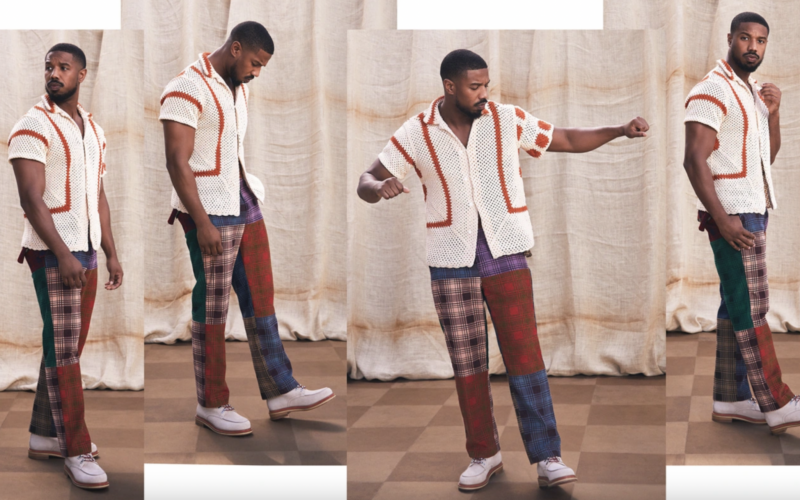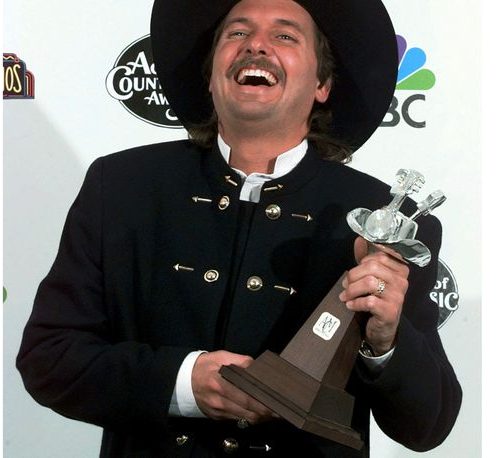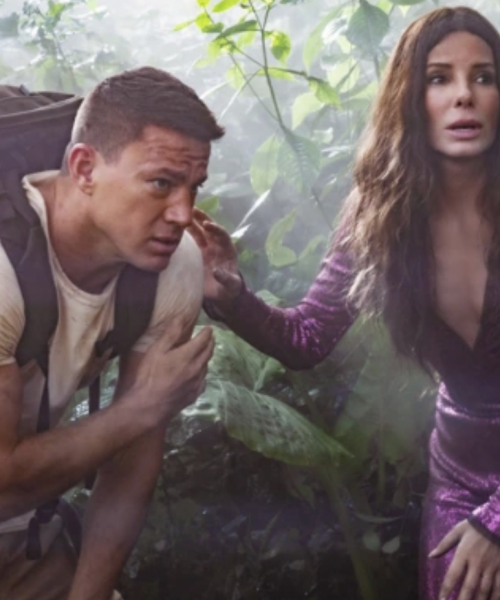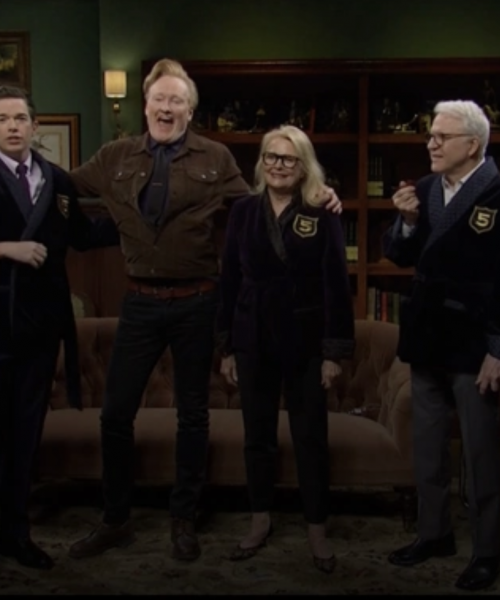BY REBECCA SUN | HollywoodReporter.Com
Troy Warren for CNT #Entertainment
As he toplines the romantic drama ‘A Journal for Jordan’ and prepares his directorial debut (‘Creed III’), the actor-producer discusses his “clean brand,” new willingness to share his personal life and the price of agitating for real change in Hollywood.
By his own account, Michael B. Jordan has been building his entire life toward this moment. For the past several months, he’s been hunkered down in Atlanta, living in a hotel, which will continue to be his home base for the next half-year as he prepares to make his directorial debut with Creed III. Meanwhile, he has a new film — the Denzel Washington-directed romantic drama A Journal for Jordan — to promote, so although he’s just gone to bed at 5 on this November morning, he’s already up again at half past noon, peeling an orange for sustenance as he chats with a reporter and recounts the outcome of the Canelo Álvarez-Caleb Plant fight the night before, which he and his department heads had watched on pay-per-view for research.
“Canelo fights orthodox — he fights right-handed — but he’s a lefty, so that means his lead hand is his dominant hand, and it’s so dangerous,” says Jordan, shadow-boxing to demonstrate. “[The lead hand] is the setup hand for your power punch, but if your power punch is your setup hand, then people are expecting you to throw the bomb here, but it’s really coming with this guy. So the setup is coming full force.”
For Jordan, everything that has come before — the two-decade ascent to A-list movie star, with a résumé spanning prestige series (The Wire) to billion-dollar blockbusters (Black Panther) — has merely been the setup. It’s all been part of a meticulously calibrated strategy to reach this point in his career and his life where he can finally fully control his narrative, his brand, his business.
He’s keenly aware that his personal trajectory coincided with a timeline of (relative) racial progress in Hollywood, creating a unique window of opportunity, and it’s part of the reason he’s been so strategic. “To be young, Black and successful — and disruptive — in this industry, there’s a certain navigation to get to the place I need to get to,” he explains. “This is the most open that things have been for somebody who’s in favor right now, and you try to hold that moment and stay in it for as long as you can.”
For Jordan, 34, that means capitalizing on his clout, transitioning to more mature parts as an actor, making his debut as a director on a nearly $400 million studio franchise (Creed III, in which he also stars) and branching out as a businessman.
“My ambition has intersected at this moment where I have the experience and knowledge to direct, the opportunity within a franchise to step behind the camera and [the ability] to maximize it by having a production company,” he says. “It’s my turn to make my impact while I have the energy and strength. I’ve got to tee up the ones that come after, but at the same time hyper-focus on what needs to be done right now. It’s the moment I’ve waited for my entire life. This is it. This can dictate the next 10, 15, 20 years.”

The feature A Journal for Jordan, which Sony will release in theaters Christmas Day, is adapted by Oscar-nominated screenwriter Virgil Williams (Mudbound) from Pulitzer Prize-winning journalist Dana Canedy’s best-selling 2008 memoir of the same name. Canedy’s fiance, U.S. Army 1st Sgt. Charles Monroe King, was killed in Iraq in 2006, and the book is addressed to their then-infant son, with Canedy recounting their nearly decade-long relationship as she weaves in excerpts from the 200-page diary of fatherly advice that King penned during his deployment.
The film hops back and forth between the widowed Dana’s mournful present and the rosy, pre-9/11 years of her courtship with Charles, played by Jordan.
In the role, the actor — who produced through his Outlier Society — exudes the physical prowess of the various athletes and action heroes he’s played in projects like Friday Night Lights, Creed and Without Remorse, crossed with the clean-cut charisma of his offscreen public persona. His Charles is a small-town square whose chivalrous Midwestern values spark an opposites-attract contrast with the urbane modernity of New York Times senior editor Dana, played by The Photograph‘s Chanté Adams.
“Romantic hero” is a role Jordan has until now declined, partly because it wasn’t Denzel Washington doing the asking. “Selfishly, I knew I was going to grow tremendously,” he recalls of why he said yes when the screen legend turned director and his producer Todd Black came calling with the script. He had at that time already decided to try his hand at helming the third Creed film, and saw the opportunity to get two master classes in one.
For some, Journal represents a long-awaited first collaboration between Washington and the presumed frontrunner to be his heir. Both are aware of the comparisons, even if they don’t see themselves — and each other — that reductively.
Washington demurs when asked whether he recognizes any of himself in the younger man. “I just know I like him, and I can see why audiences love him too. Whatever that ‘It’ factor is, he has it,” says the director, who probably has an idea.

Jordan’s take on one of his idols: “Denzel perfected ‘leading man.’ He was like, ‘I’m going to fucking dominate this one thing and master it’ — the specificity of that got him to the point where he is universal and can do anything,” says Jordan. But as much as he admires Washington, he identifies more with another generational icon. “Will [Smith] took an enterprise approach, and that’s something I connect with. He says all the time that he doesn’t feel like he’s the most talented, but he works the hardest. It’s work ethic, big vision, marketability.”
Jordan and his longtime agent turned manager Phillip Sun have methodically mapped out his own big vision. “Phil and I are always going over the three-year, five-year plan,” he says, noting that in addition to the “one for you, one for me” blockbuster-prestige model that only top actors have the ability to carve out, he’s also been contemplating another career trajectory.
“When do you want to age yourself in your filmography?” he muses about the gap between his still-youthful looks (he acknowledges he could still play 18, at least on The CW, if he shaved) and his itch to play more mature, meatier parts. The role of Charles in Journal represents a transition into the mid-adulthood of a grown man who has come of age, as well as Jordan’s first romantic drama.
Journal also shows off another side of Jordan for the first time. “One of the reasons I hired a woman DP is because, thinking about Dana, I wanted a woman’s perspective,” says Washington, who asked the film’s cinematographer, veteran Maryse Alberti (The Wrestler, Creed), where to place the camera during a love scene between Charles and Dana. “On Michael,” Alberti replied. “On his butt.”
It’s just been in the past year that Jordan has had a little more fun with the thirst-trap aspect of his appeal. After being crowned People‘s Sexiest Man Alive in November 2020, in February he played a fantasy embodiment of Alexa in a Super Bowl ad (a canny bit of cross promotion to kick off his newly inked first-look film and overall TV deal with Amazon Studios). All this coincided with unlocking a significant achievement in his personal life.
“There are roles that I passed on that I knew I didn’t have enough life experience to play. I was like, ‘What can I pull from?’ ” Jordan says. “But I finally found what love was.”
As anyone paying even glancing attention to such matters (or social media) knows, Jordan is referring to his yearlong relationship with model-influencer Lori Harvey, daughter of comedian and Family Feud host Steve Harvey. After years of mostly staying silent in the face of speculation about his romantic life, not only about whom he was dating but also the types of people he is and isn’t attracted to, he and Harvey have leaned all the way in to being Instagram official, posting PDAs from Salt Lake City to St. Bart’s.
“When I was younger, I don’t know if I could have handled the onslaught of opinions and being picked apart, and also being conscious of what the other person’s going to go through,” says Jordan of why he finally went public with his dating life. “It takes a special person to deal with that.”
But also, he says, “the situation for me was real enough” to share. “There’s a premeditated planning of staying out of the way [of the public eye] that sometimes kills spontaneity and intimacy. I wanted to take that away and give this the best chance it had, in this weird world that we live in, to be somewhat normal.” Jordan’s uncharacteristic effusiveness is the giddiness of a man in love for the first time, who also has just given himself the freedom to double-tap his girlfriend’s pictures without overthinking it.
“Long story short, I think it’s just the timing of everything. It was the right time for me,” he says, flashing a smile. “Yeah. I’m happy.”
***
Jordan is standing in the general manager’s office deep in the bowels of a Regal Cinemas in midtown Atlanta. In a few minutes, he and Journal co-star Adams will crash a preview screening of their film and surprise a full house of military veterans, book club members, and HBCU students and alumni. But first, his attention is drawn to one of the autographed posters on the wall: Red Tails, the 2012 Lucasfilm drama about the Tuskegee Airmen, the Black fighter pilots deployed during World War II, in which he had a small role.
“That was the moment that set me on the road to be able to stack a run of jobs together, that would be the foundation I could start to grow from,” he says. It may feel in hindsight like there has been an aura of inevitability around Jordan’s eventual superstardom ever since his teen days as young, doomed Wallace on The Wire, but in his early 20s he found himself just another actor living paycheck to paycheck in Los Angeles, scratching together just enough guest appearances on episodic television to make the rent.
“Secretly, I felt left out and overlooked,” he says of that period of rejection. “And I think that drove me further into the cave of working hard. Like, ‘I’ll show you.’ “
Jordan was weeks before his self-imposed deadline to pack it up and move back to his Newark, New Jersey, hometown when he booked Red Tails. Although he was paid scale and his part was cut down to just a couple of scenes, the experience of shooting the film — which featured Cuba Gooding Jr. and Terrence Howard leading a cast of promising Black talent that included Nate Parker, David Oyelowo and Leslie Odom Jr. — kick-started his aspirations. “That’s when I started thinking ‘leading man,’ ” he says. Whether incidentally, by providence or through sheer force of determination, Red Tails directly preceded a winning streak that included high-profile arcs on Friday Night Lights and Parenthood, the cult favorite Chronicle and then, in 2013, Fruitvale Station.
“Years later, I understand that what’s for you is for you. Maybe if I got too much too fast in the beginning, I would have broken mentally and emotionally. You see how Hollywood chews and spits people out,” Jordan says now. “So, God gave me what I can handle. And part of me is like, ‘I’m just making up for lost time.’ “
Those speed bumps in the late aughts created a chip on Jordan’s shoulder that he’s never fully shaken, which has only served to further fuel his innate determination. Jordan traces that discipline to his Marine veteran father, who was skeptical about his namesake’s fledgling child modeling and acting career (Jordan’s parents — mom Donna is a visual artist and former teacher — “come from a generation of ‘go to school, get a job that has a future’ “) until he chaperoned his young son at a shoot. “It was a Doritos print job or something, and I was sick but didn’t want to cancel, so I went and powered through the whole day,” Jordan says, recalling vomiting and lying down between setups. “My dad saw me work through that and the way the adults on set treated me and talked about me.”
Being sick and faint that day, Jordan was passed out during those conversations, but his father relayed the experience to him years later. “Bakari” — Jordan’s family calls him by his middle name — “that’s when I knew you were special,” his dad told him. “I saw it. You had the drive; you were locked in.”

Deep in the recesses of a closet in the luxury suite that serves as Jordan’s home base during his extended work stay in Atlanta is a television hooked up to the only escapist pleasure he’s allowing himself during this critical time in his life: Call of Duty. It’s buried back there not in order for Jordan to avoid the tempting distraction, but vice versa: to protect his leisure time from the encroaching demands of his work. “When you walk in my room, you can’t look in one direction without seeing storyboards everywhere,” Jordan says. “When I’m literally in the depths of the room in the far dark corner, I can play this game. Because if I were to play it out here, I would be looking around, like, ‘What am I doing? I’m playing a video game when I should be doing other things.’ “
Those things nowadays mostly revolve around being in preproduction as a first-time director, but they also include maintaining his obligations as an actor (he gets in a boxing workout five days a week) and keeping up with Outlier Society’s packed slate, which in addition to Creed III (for which he’ll be paid north of his $15 million take on Without Remorse, which Amazon released in April) includes the Thomas Crown Affairremake at MGM (in which he’s also expected to star), Muhammad Ali limited series The Greatest at Amazon and live-action DC Comics adaptations of Static Shock at Warner Bros. and Val Zod at HBO Max.
Since launching Outlier in 2016, Jordan has produced or executive produced every project he’s starred in, with the exception of Marvel’s Black Panther. He says he’s not beholden to that stipulation — “If Christopher Nolan hits me up, I’m going to do that” — but he naturally gravitates toward opportunities that are multidisciplinary in nature: projects that don’t live only as movies or TV shows but come attached with additional revenue streams or impact initiatives.
“I want to be able to go, ‘This IP right here, we’re going to have this merch.’ That could turn into a scholarship fund, and we might be able to make an amusement park deal there, and CPG — consumer packaged goods — here,” he explains. Jordan’s upcoming HBCU basketball invitational, the Invesco QQQ Legacy Classic, exemplifies his approach: In addition to the tournament, which will air Dec. 18 on TNT, the event also will feature HBCU band performances, a career summit, and a startup pitch competition for student and alumni entrepreneurs.
The showcase is presented in partnership with the sports division of WME, his longtime agency. WME parent Endeavor went a step further in the Michael B. Jordan business in June, when its cultural marketing agency 160over90 committed a $20 million investment in his latest venture, Obsidianworks, a full-service advertising and marketing agency. Founded by Jordan and his childhood friend Chad Easterling, a former Nike marketing director, Obsidianworks has already driven campaigns for past and present Jordan associates including Amazon, Coach and Piaget, as well as the Academy of Motion Picture Arts and Sciences.
The idea for the company had been in the works for years. It started with “wanting to be an authentic voice for the studios,” says Jordan, who as he became more and more of a commercial asset increasingly found himself being solicited for opinions in rooms full of white executives. “I know there are not a lot of people like me internally, and you all are going to come mine us for ideas anyway, so I might as well have my own stable that’s protecting my voice and image as I move throughout my career.
“And then you start to see, oh, there’s a commercial and corporate client level of this too, because these brands need that voice if they want to avoid these potholes they seem to keep stepping in,” he continues. “And then the timing, again, just started happening — George Floyd, quarantine, companies getting called out. Now more than ever, this is needed, and now it’s about holding these companies, these partnerships that I have, accountable.”
Jordan famously became the first big movie star to adopt an inclusion rider on his productions, using his clout to get his agency and the studio where he had a film deal at the time, Warners, to sign on as well. (As part of its commitment, WarnerMedia pledged more transparency in its hiring practices, and although crew breakdowns for each production remain elusive, the company is now issuing annual equity and inclusion reports.)
“Michael was so powerful in getting us in the door for real conversations at places he had real relationships with, using his star quality to open doors,” says Color of Change president Rashad Robinson, whose racial justice nonprofit partnered with Jordan last summer to launch the #ChangeHollywood initiative, a call for producers, talent and other decision-makers to pledge to reform the business by following a five-step action plan. “He’s brought his businesses along, and he’s brought businesses he has relationships with.”
That said, Jordan is aware of the pitfalls of being considered a savior or used as a poster child for superficial progress. “I don’t want to be the sole validator and fixer of everybody else’s company,” he says. “I’m not the Black friend you need to get to be like, ‘I’m good because Mike’s here.’ “

***
After talking to Jordan for a while, it becomes apparent that he sees himself as somewhat of a loner seeking his tribe. It’s evident in the way he talks about feeling pitted against other Black actors in his age category, particularly in that leaner stage of his career, and in the wistful envy in which he describes the Hollywood “cliques” of yore — the Rat Pack, Will Ferrell and Adam Sandler’s respective comedy crews, Scorsese’s posse.
“I was like, ‘Damn, I want one of those. Who are my running mates?’ That’s something you don’t see much of now, because there’s an oversaturation of outlets, which kind of took away that ability to sit down together and go do shit.” He points to social media as the platform today where “creatives are getting together and being creative [in ways that aren’t] necessarily accepted yet in mainstream Hollywood,” as well as to, among his peers, multihyphenate talents like Donald Glover and Issa Rae, who have been able to develop like-minded collectives.
His level of success — the kind where you can, say, mandate an inclusion rider, encounter little to no studio resistance and be praised for it — has at times created distance from colleagues in the industry. “The response sometimes to what I’m building is, ‘That’s easy for you to say because you can afford to take certain risks. I can’t move like that,’ so that’s naturally alienating,” says Jordan.
He launched Outlier Society (the moniker is an homage to Malcolm Gladwell’s best-seller Outliers) in part to find fellow disrupters who resist, as he puts it, boxes or labels. “When I was in school, I always thought that maybe I was paying attention to a frequency nobody was paying attention to,” he explains. “I’m an empath, so I feel everything to a fault. Vibes, energies, conversations, tones of words, levels of speech, body language, behavioral patterns. That’s getting real personal and deep, but those are the things I see in everyone all the time. And that can be isolating.”
He adds, “I bite my tongue with certain conversations. Reading the room is a good skill to have in this industry, but it’s hard for me to notice the elephant in the room and act like it’s not there.”
Early on, he found that the times he spoke up to offer a perspective from the status quo, he was able “to get everybody else to look at what I’m looking at … and that practice, in life, started to fold over into the art and the work.” Jordan had a hard time coming up with a mission statement for Outlier Society, but perhaps it’s simply: Make things that make people think about the elephant.
Jordan becomes circumspect when asked for some examples — he says 2019’s Just Mercy, an obvious cause-oriented film, is more on the nose than what he means — and says it hasn’t been until this moment, with a handful of projects Outlier is now developing, that he’s been able to execute on his vision. “The elephant … is a mentality and an approach in practicing thought” and not necessarily about making message movies, he says. “There are about four on the slate that are being built and designed and incubated with that type of intent.”
With all the chess pieces of his nascent empire now lined up, “this next three-year run will be almost a true representation of the plan. It took strategic wins to get to the point to be able to work freely without major roadblocks. I had to be successful in front of the camera to give me the leverage I need behind the camera. For me, it was about becoming a leading man and having a clean brand, so that I can get to a place where nobody can tell me no,” he says. “Having to navigate production meetings and press tour and relationship and family and business — it’s all happening at the same time. It’s the biggest juggling act I’ve ever done. And I’ve never felt more alive than right now.”
***
THE MBJ PORTFOLIO
How the actor has strategically leveraged his brand to build a budding empire.
OUTLIER SOCIETY
Led by president Elizabeth Raposo, Jordan’s production company reflects his diverse tastes. The slate includes adaptations of Charlie Jane Anders’ sci-fi coming-of-age novel Victories Greater Than Death as a series and Akwaeke Emezi’s upcoming romance You Made a Fool of Death With Your Beauty as a feature, both at Amazon. The banner also is producing Sony/TriStar’s adaptation of N.K. Jemisin’s Broken Earthfantasy trilogy.
OBSIDIANWORKS
The Black-led marketing agency, which includes CAA Foundation alum René Spellman and marketing vet Bobby Moore III as chief impact officer and chief strategy officer, respectively, has served as the multicultural agency of record for Jordan joints such as Amazon’s Without Remorse and Coach (he released his latest collection with the brand, a collaboration with artist Blue the Great, in October). OW also partnered with Amazon in summer 2020 for the community screening series A Night at the Drive-In.
INVESCO QQQ LEGACY CLASSIC
Jordan has ambitions to turn his college basketball invitational into an annual tradition centered around HBCUs as a hub of Black culture, community and enterprise. Taking place at the Prudential Center in his Newark hometown, the four-team tournament includes Howard (where Jordan’s brother, Khalid, played football), while fellow WME client Serena Williams’ Serena Ventures and Charles D. King’s MaC Venture Capital will field startup pitches from Black entrepreneurs.

In Other NEWS



































